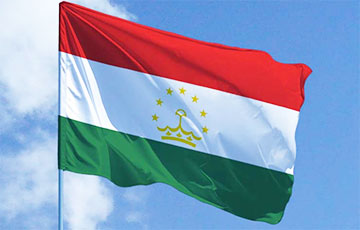Rakhmon's Regime Starts Shaking In Tajikistan
2- 1.07.2024, 8:38
- 18,858

There have been mass arrests of officials in the country.
On June 20, 2024, the press service of Tajikistan's ruler Emomali Rakhmon reported that he had signed a total of 35 laws "aimed at protecting the true values of national culture, preventing superstition and prejudice, excesses and wastefulness in celebrations and rituals, to raise the spirituality and socio-economic level of the people of Tajikistan, as well as to protect children's rights and freedoms, and to educate and train children in the spirit of humanism, patriotic pride, and respect for national and universal values," TRT writes.
However, what drew public attention, and not only Tajikistan's, was the ban on "imitating a foreign culture in clothing, i.e. wearing foreign clothes called satr and hijab," which Rakhmon had announced months earlier.
Almost simultaneously, there has been a crackdown on a number of important political figures in Tajikistan. Media sources report that about 50 people have been detained and interrogated these days, including former chairman of Tajikistan's Supreme Soviet Akbarsho Iskandarov, who once even served as acting president, former Foreign Minister Hamrokhon Zarifi and MP Saidjafar Usmonzoda, a former leader of the Democratic Party.
Opposition leader Mukhiddin Kabiri, who is in exile, pointed out in a conversation with public figure Ruslan Aisin that, unlike previous repressions, the current one has affected the group on which Rakhmon has so far been relying - the Kulyabis.
Kabiri also affirmatively responded to Aisin's question about whether the current repression could be a preparation for the final transit of power from Emomali Rakhmon to his eldest son Rustam, who has been chairman of the upper house of the national parliament, Majlisi Milli, since 2020.
He believes this may be indicated by the dismissal of Saidjafar Usmonzoda as chairman of the Democratic Party, which preceded his arrest, as Rakhmon might be concerned that it would nominate a strong candidate capable of competing with his son in the presidential election.
Kabiri said such logic would make the underlying nature of Rakhmon's behaviour clear by the end of 2024. If by then he resigns and nominates his son Rustam Emomali to replace him in the presidential election, the current repression will be a preparation for that. Otherwise, they will be a manifestation of Emomali Rakhmon's growing insecurity in his entourage, which could then spread to his family.
In light of the talk about a possible transit of power to Rustam Emomali, attention should also be paid to his sort of international debut at the meeting of the CSTO Parliamentary Assembly held in Almaty on June 3 this year. While both Kazakhstan and Russia are publicly discussing the issue of recognising the Taliban's power in Afghanistan, Rustam Emomali called it a threat to the CSTO member states. This speech is significant because, according to Kabiri, some "opinion leaders" in Tajikistan have started to create an image of Rustam Emomali as a politician who, unlike his father, will be able to restore dialogue with the part of society that is now virtually marginalised, including the religious part. However, such a speech demonstrated that he will continue his father's irreconcilable line.
The continued anti-religious, militantly secular character of the Tajik government, whether transit occurs or not, is also evidenced by the bans on Islamic dress for women and religious activity for children. In fact, it would be difficult to expect anything else, since the current government emerged out of fear, including fear of the religiosity of the Tajik people, manifested in the activities of the opposition, and has been supporting this fear all these years.
At the same time, the foreign policy context of these Tajikistan power's measures is noteworthy, namely the fact that they came at the time of heated discussions in the Russian media about the need to ban the niqabs in the country. Proponents of such a ban in Russia have welcomed the news from Tajikistan, which looks like a clear reinforcement of their arguments - if "Muslim Tajikistan" has banned even the hijab, what prevents "Christian Russia" from banning at least the niqab?
It is also indicative that these bans were introduced after a short-term crisis in Russian-Tajik relations, which was resolved by a meeting between Emomali Rakhmon and Vladimir Putin. Therefore, it is possible that another addressee of these bans was the part of the Russian establishment that is behind the "anti-Islamist" campaigns in Russia. In this way, Rakhmon's power, ideologically close to it, seems to make it clear that the environment favourable for the upbringing of those labour migrants who are acceptable to Russia and do not pose an "Islamisation threat" to it, will be created in Tajikistan.











